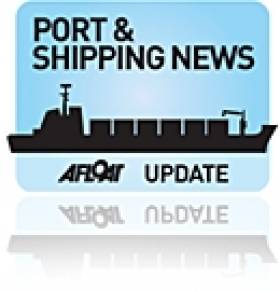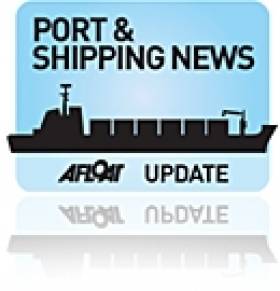Displaying items by tag: Huelin Renouf
Irish Flagged Cargoship Could Return to Open Proposed Channels Islands Service
#ChannelISLANDS – Following the demise of Huelin Renouf Shipping in August, a new UK based company is planning to replace the freight service between the Channel Islands.
If implemented, the new shipping company, Channel Island Lines (CIL), will charter the Irish flagged Huelin Dispatch which has been operating for Huelin Renouf and only since September of last year.
Under the proposed new service, the vessel would operate three return journeys a week between the islands and the UK, creating around 60 jobs and employing former staff where possible.
For more on this story, The Handy Shipping Guide has a report.
#IslandsCargoShip – Huelin Renouf Shipping, a freight-only company serving between the UK and Channel Islands has ceased trading this week and the operation of an Irish-flagged chartered cargoship, writes Jehan Ashmore.
According to a statement released by Huelin Renouf, the freight-only operator which has provided the service for almost eighty years, cited the decision to cease services with immediate effect on Monday, was not taken hastily or lightly.
Despite concerted efforts of company management to secure services with a number of potential purchasing parties, they have been unable to agree a sale of the business. Following this announcement there was to be an immediate winding up of proceedings and it is anticipated companies will be placed into liquidation, or in an England Administration, this week.
Huelin Renouf, had operated daily freight services between Southampton, Jersey, and Guernsey, and a twice weekly service to Alderney.
Since September, the Jersey based company has chartered Dundalk Shipping Ltd's registered Huelin Dispatch (2012/2,545grt), a brand new €8.8m Dutch built container 'Combi-Freighter' which as previously reported on Afloat.ie had the misfortune in striking a rock off Alderney while on her inaugural round trip cargo voyage.
The grounded Dundalk registered cargoship was assisted by rescue authorities and refloated, yet despite damage she reached Falmouth under her own power for repairs and returned to service.
The closure of Huelin Renouf, according to the Guernsey Press & Star has led to construction suppliers on the island fearing that the remaining shipping companies might not be able to cope with demand now that one of the largest freight services has gone bust.
Afloat.ie adds that the loss of Huelin-Renouf leaves only one main shipping operator serving the Channel Islands to the UK, that role been in the hands of Condor Ferries. This operator provides conventional ferry and fast-ferry services and a single ro-ro freight ship.
Unlike Huelin Renouf, Condor Ferries network of routes to UK ports also includes routes serving France to the Breton port of St. Malo.






























































